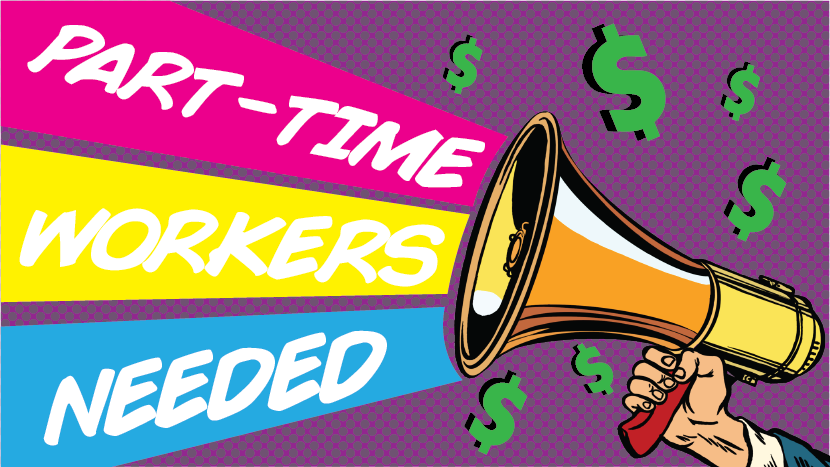Louisiana’s trivial minimum wage has remained stagnant, not budging from the federal minimum for 14 years. The federal minimum is no longer a living wage, especially for full-time college students who can only work part-time.
Students have to pay for rent, groceries, bills and school supplies, and they are forced to take out loans or get financial help elsewhere on minimum wage.
Ben Zipperer, an economist specializing in the minimum wage and low-wage labor markets at the Economic Policy Institute, told Insider, “There is literally no county in the country where you can live, even as a single adult with no kids, earning less than $15 an hour and still be able to afford basic expenses like rent, commuting costs, food and so forth.”
When discussing minimum wage, it’s important to mention the consumer price index and inflation, as they are intricately laced with the issue of living wages.
The consumer price index, CPI, is an index that measures how prices paid by consumers change per month. This index is a popular way to measure inflation and deflation.
Inflation is defined by a rise in prices and a decline in purchasing power over time. A rise in prices means that a unit of currency buys less than it did in prior periods.
The minimum wage is deeply affected by inflation because when inflation occurs and the minimum wage remains the same, workers are now receiving even less money because the amount of money is no longer worth the same amount, according to the Economic Policy Institute.
According to an article by the Louisiana Budget Project, “Approximately 37 percent of all workers (745,000) and 86 of workers living below the poverty line (159,000) in Louisiana would get a pay raise if the federal minimum wage were raised to $15 an hour.”
With the number of people who would benefit from raising the minimum wage, poverty levels could decrease, which was nearly 20% as of 2021 in Louisiana.
Scott Abrahams, assistant professor of the department of economics at LSU, says the debate surrounding minimum wage usually focuses on how much it could raise the income of low-wage workers and reduce poverty versus how it could impose cost increases on firms affecting employment or ability to keep businesses open.
“Mathematically, keeping the minimum wage fixed at the federal minimum wage of $7.25 actually means lowering what we call the real minimum wage over time,” Abrahams says.
He says that $7.25 in 2008 is worth $9.85 today, meaning the purchasing power of minimum wage has decreased over time.
With a minimum wage that has decreased in value, it should be raised to at least match the worth of what it used to be.
Abrahams says with a minimum wage raised to $10.75, 60% of the local median hourly wage, researchers say it suggests room to increase minimum wage without causing a significant impact on employment.
“For a modest minimum wage increase, we would be unlikely to notice any change in the state’s unemployment rate,” he says.
With such an unnoticeable change to unemployment, one reason raising the minimum wage is seen as bad is ruled out.
Abraham says people directly harmed by raising the minimum wage would be workers who can’t find a job due to decreased employment and business owners whose margins are squeezed, but research shows that this effect is small.
“For the economy as a whole, we would have a very difficult time detecting anything close to inflation in the sense of the word as we see it in the news lately,” Abraham says.
With all of this information, raising the minimum wage in Louisiana would be beneficial to workers while having minimal effects on the economy.
One group that suffers largely from a low minimum wage is tipped workers, especially servers and bartenders. Since Louisiana has no tip and wage laws, Louisiana employers follow the federal tip credit rules.
“Servers can be paid as little as $2.13 an hour, as long as the employee earns enough in tips to add up to the federal minimum, $7.25,” according to an article by NOLA.
By giving tipped workers the same minimum wage as other workers, servers and bartenders would make significantly more money, but even by raising the state minimum wage, they would be making more money if their tips did not reach that amount.
Louisiana’s minimum wage is long overdue for a raise. Thirty-one states have raised their minimum wage above the federal minimum wage, and it’s time for Louisiana to do the same.
Increasing Louisiana’s minimum wage will lead to higher pay for workers, allowing them closer to a living wage while causing a minuscule effect on the state’s economy.
Kate Beske is a 19-year-old journalism sophomore from Destrehan.
Opinion: Louisiana’s minimum wage should be raised
By Kate Beske
January 21, 2023





